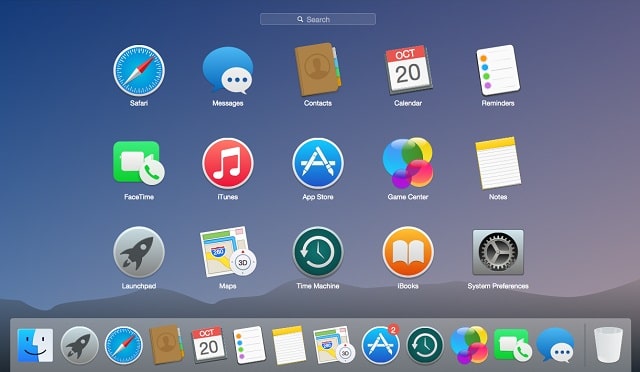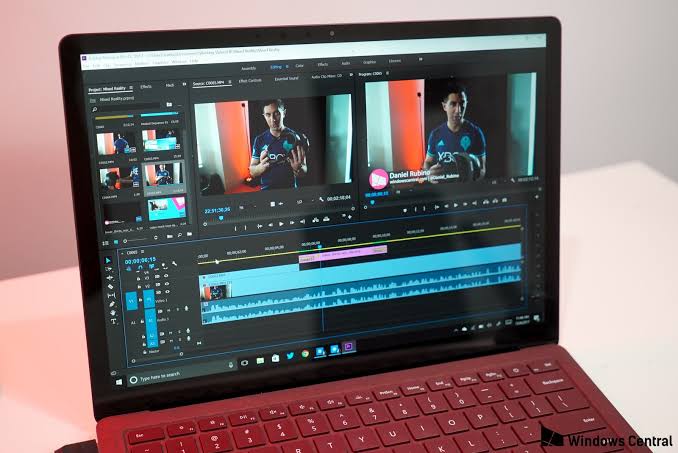Choosing a laptop is difficult enough without adding to the uncertainty generated by the sheer quantity of laptop processor models and brands. Why is it so difficult to choose a laptop based on processors? The truth is that it is easier said than done, but with the correct information, you can go from being an inexperienced laptop buyer to an expert on the issue in no time. This post is dedicated to de-mystifying, organizing, and giving you exactly everything you need to know about the processor that your future laptop should have, what it’s good for, and how it affects your gaming experience.
Page Contents:
They are not the primary game processors
The GPU is widely regarded as the most critical component for PC gaming and gaming experience. Because the GPU is responsible for rendering the images, scenes, and animations you see. The majority of today’s fast-paced games are extremely demanding in terms of GPU rendering capability. At the same time, many games are built to take advantage of the modern CPUs’ multiple cores and threads.
Both the CPU and the GPU are critical components. In order to play demanding games, you’ll need both a smart CPU and a strong GPU. However, how important they are for PC gaming is dependent on what they will be utilized for first and foremost, and which games in particular.
During a game, CPUs are given duties that the GPU isn’t very good at, such as the artificial intelligence (AI) capability of non-player characters (NPC). Many workloads, on the other hand, are better suited to the GPU. Some games benefit from having more cores because they make use of them. Others may not be able to do so since they are only programmed to use one core, and the game benefits from a faster CPU. Otherwise, it will be unable to run due to a lack of power and would be sluggish.
The processors’ GPU
In both consumer and business computers, the graphics processing unit, or GPU, has become one of the most essential types of computing technology. The GPU, which was created for parallel processing, is utilized in a variety of tasks, including graphics rendering, and image, audio and video rendering.
GPUs are becoming more popular for usage in creative and recreational purposes and artificial intelligence, despite their best-known use in gaming (AI). GPUs were created with the intention of speeding up the rendering of 3D visuals. They improved their capacities by becoming more versatile and programmable over time.
With enhanced lighting and shadowing techniques, graphics programmers were able to generate more fascinating visual effects and realistic scenes. Other developers started to use GPUs to substantially speed up other workloads in high-performance computing.
How the GPU and CPU affect the gaming experience
The GPU arose as a complement to the CPU, its near cousin (central processing unit). GPUs are specifically built to accelerate computer graphics applications, whereas CPUs have continued to bring performance advances through architectural breakthroughs, faster clock speeds, and the addition of cores. When purchasing a system, understanding the role of the CPU vs. GPU will help you get the most out of both.
When it comes to gaming, the GPU is as Important as the CPU. The GPU takes a larger load when it comes to audio and video rendering. The cool graphic display you see when playing games like Call of Duty, Devil May Cry and FIFA are all processed by the GPU.
Number of Cores matters
On a computer, the CPU (Central Processing Unit) manages all tasks and applications. A processor core is the part of the CPU that permits all of your computer’s tasks to be completed. The CPU cores are in charge of processing and carrying out the activities that a computer performs.
When processing data, the processor cores go through four steps: fetch, decode, execute, and write back. Each cycle of the process is called an instruction cycle, and it happens swiftly. The minimum number of CPU cores necessary for gaming is four. In order to have the best gaming experience in 2022, it is advised that you have six cores. Eight cores can help your gaming PC be more future-proof, but they aren’t essential just yet.
Gaming needs a significant amount of processing power, which is amplified if you wish to broadcast or operate other programs in the background. The number of cores you require depends on your needs, but for entry-level gaming, we recommend at least 6 cores.
Power consumption of Laptop processors
Although the processor cores consume the same amount of electricity, the laptop CPU unit has a relatively low thermal enclosure and Thermal Dissipation Power (TDP). As a result, a typical laptop CPU (mobile U series) has a TDP of 15 watts at the base clock but can reach 45 watts when the cores are operating at their boost frequencies (or turbo). Because of the low TDP, the chip will thermally throttle under load, relying heavily on cooling efficiency to maintain peak performance.
Normally, a desktop CPU package will be rated at 65W or 95W. so, when the cores run at significantly higher base clocks, their power consumption, and energy spent on cooling the CPU would also increase. CPU units- processors are designated specific codes and classified based on power management efficiency. You must have seen these letters written in uppercase alongside the model of the processor.
- U is Ultra-Low-Power consumption.
- M for Mobile.
- QM for Quad-Core and Mobile MQ is the same (Mobile and Quad-Core).
- HQ is for High-Performance Graphics and Quad-Core.
Each of these prefixes indicates the features of the processor. For example, a processor with ” Y” (Extreme Low Power Consumption) in the name, would have the best battery life and may not have any fans inside, but it will likely slow down the clock and have fewer Cores than a similar processor with H or HQ capabilities, which will be focused on getting the best performance without regard for battery life (like gaming computers).
The “U” prefix stands for Ultra-Low Power Consumption and may allow for a better mix of performance and battery life. However, performance will be lower than an equivalent H Processor, allowing for a smaller and more elegant laptop (about 2lbs only). So, the most crucial thing is to know about your working style?
- Is it better for you to have the best possible performance (even if it means connecting the laptop to a power outlet): Select H or no letter.
- Do you like to travel and use your laptop for long periods of time without connecting it? Selecting the “Y” type may result in a battery life of more than 18 hours and perhaps you’d want to trade some battery life in exchange for the best performance for your area of work?
The ‘U’ brand has the least battery performance because it is built to maximize performance. May yield up to 12 hours or more. This is why you must look at the processor prefixes.
Frequency and overclocking
A clock speed of 3.5 GHz to 4.0 GHz is generally regarded as a respectable gaming clock speed, however, single-thread performance is more crucial. This indicates that your CPU is capable of comprehending and finishing single tasks. This is not the same thing as a single-core processor. Having additional cores means your CPU can understand many job instructions, whereas optimal single threading means it can handle each one independently and efficiently.
Video games are designed to transfer you to a different world and allow you to explore new terrain. Allowing a lack of processing power to take away the magic from your environment would mess up your gaming experience. Most people are aware of their computer usage habits; whether you’re a gamer or not, whether you use your computer on a daily basis or not. Knowing this knowledge about your own habits simplifies the process of selecting a processor.
You’ll probably need a 4 or perhaps 8-core processor if you’re running multiple applications at once or playing complicated games. A dual-core CPU would usually suffice if you’re only searching for a computer to get basic activities done quickly.
You’ll need a higher clock speed near 4.0 GHz for CPU-intensive computing like video editing or gaming, although basic computing needs don’t necessitate such a high clock speed.
Generations of Processors
Intel’s processor generation is significant. The performance of each next generation improves. This isn’t true in all games or situations, though. They provide the same FPS in some games and settings, but they provide up to a 10% improvement in FPS in other games and certain areas of the game.
The reason behind this is that because of the models, colors, and effects utilized in the games, some areas of the game demand more processing power than others.
According to Lenovo, one of the main computer manufacturers, the 12th generation of an I series CPU is equivalent to the 10th generation of the following I series processor up. The i3 of the 12th generation, for example, is nearly equal to the i5 of the tenth generation. Here’s how they compare in general:
- A Corei3 12th generation has the same performance as the Corei5 10th generation.
- A Corei5 12th generation has the same performance as a Corei7 10th generation.
- A Corei7 12th generation has the same performance as the Corei9 10th generation.
Intel laptop processors are the overall best
There are just two options if you’re seeking the greatest CPU for gaming or the finest workstation CPU: AMD or Intel. This has resulted in an almost religious following for both groups, as well as the ensuing AMD vs Intel flame wars, making it difficult to acquire unbiased advice regarding which processor is best for you.
However, in many circumstances, the solution is obvious. In fact, as our CPU Benchmarks Hierarchy shows, it’s now a landslide victory for Intel for the vast majority of users. After AMD’s Ryzen 5000 CPUs essentially overturned the chipmaker’s decade of supremacy, this is a quick turnaround by AMD’s Ryzen 5000chips. If you’re seeking the quickest overall chips on the market, Intel’s new Alder Lake series is the way to go.
Despite the fact that AMD retains the title of having the single fastest gaming processor, Intel’s Alder Lake CPUs outperform AMD in all of the most crucial price bands. Alder Lake also competes with or outperforms AMD in every important performance parameter, such as single- and multi-threaded productivity workloads. AMD’s newest processors, the Ryzen 9 5950X and Ryzen 9 5900X, as well as the Ryzen 5 5600X, had altered the scene.
The Ryzen 5000 series were the highest-performing chips on the market at the time of their release, outperforming Intel in every important statistic, including gaming, application performance, power consumption, and thermals. With the Alder Lake CPUs, Intel now has the upper hand.
Does a higher number of cores mean a better gaming experience?
Most games use 1 to 4 cores and many require more even processor cores for an optimal experience. A quad-core processor occupies the safe zone when it comes to core units. The majority of games employ one to four cores, with several requiring more even CPU cores for best performance. When it comes to core units, a quad-core processor is in the safe zone.
World of Warcraft, for example, is constantly improving the gaming experience with new gaming abilities and game environments that demand more intensive computing. Multi-core technology is used in CPU-intensive gaming to bring graphics, music, and gameplay together to provide a hyper-realistic game experience.
A single-core CPU excels at completing single activities, however, it may have an impact on games and slow down performance. More cores can help you get a better gaming experience. If you’re a hardcore player who values the developer’s intended experience, a quad-core or greater processor may be worth considering.
Bottom Line
Laptop processors are very vital if you would want to be using your system as a gaming machine. Laptop processors, unlike does of desktops, are built to suit certain types of tasks. Some processors are better suited for gaming, some for simple productive tasks like word processing, and others are geared for multi-core processing. You have to do your research about the laptop processor before getting it. Hopefully, this article has shown you the criteria to be on the lookout for when hunting for a gaming laptop.










